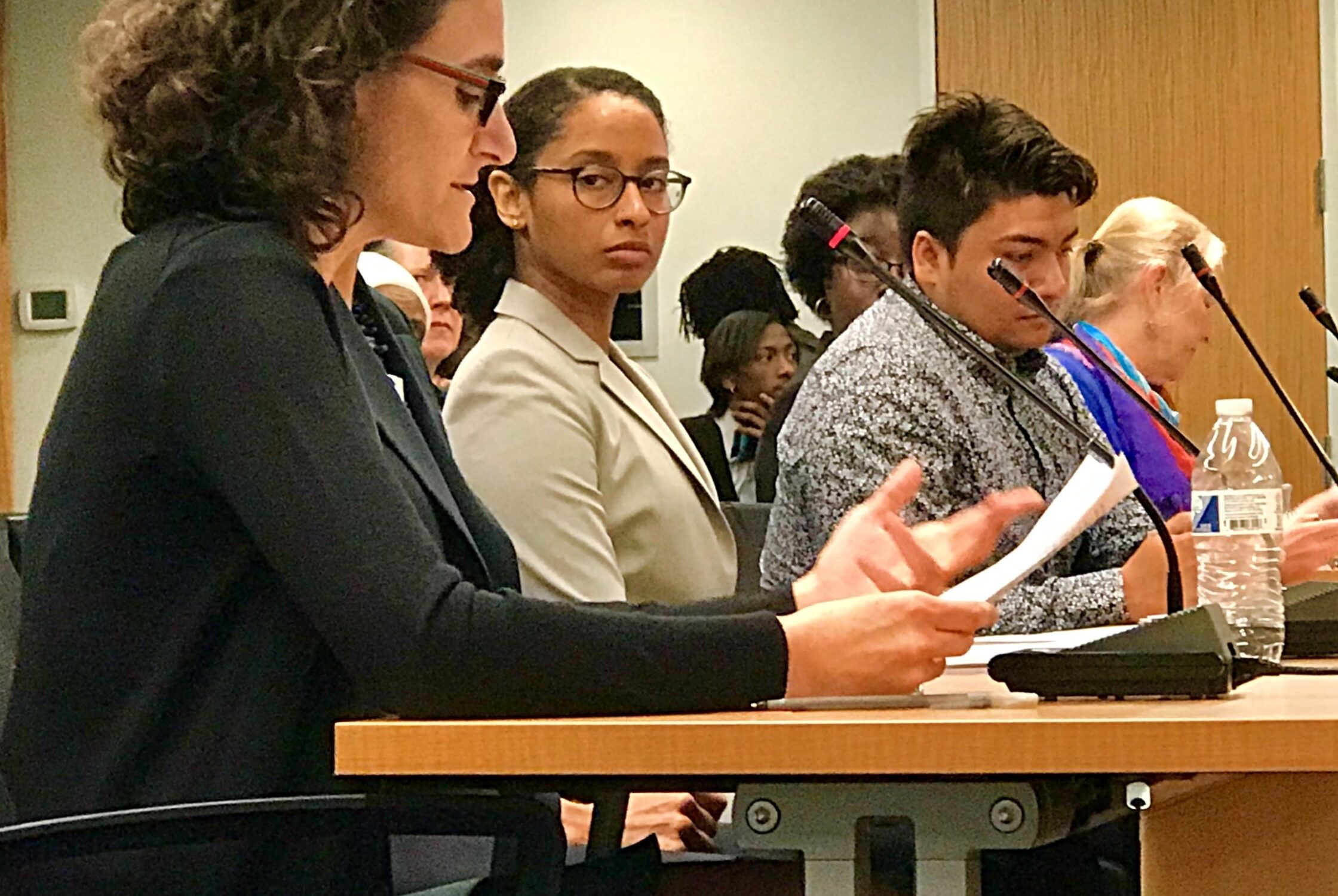U.S. Immigration Detention Centers & Treatment of Immigrants in Detention

Refugees International Senior U.S. Domestic Advocate Yael Schacher testified before the United States Commission on Civil Rights for a hearing on Immigration Detention Centers & Treatment of Immigrants in Detention on April 12, 2019.
Full Testimony
My name is Yael Schacher, and I am the senior U.S. domestic advocate at Refugees International, an independent advocacy organization that focuses on asylum, displacement, humanitarian, and human rights issues that need urgent attention and action by government officials, policymakers, and other international organizations.
Thank you for the opportunity to testify today and thank you for holding a public hearing on this crucially important topic.
Refugees International has raised serious concerns about the ways in which asylum in the United States has been restricted. We have advocated through congressional briefings, public reporting and statements, and direct engagement with relevant policymakers.
I am here to tell you the stories of two asylum seekers from Africa, one a gay man from Guinea and one a political journalist from Sierra Leone, who fled their countries for their lives. After long and dangerous journeys, they arrived at U.S. ports of entry and asked for asylum. They passed credible fear interviews by asylum officers. Nevertheless, they have been languishing in immigration prison for a very long time; one of them for over two years.
These are not violent men. One spoke out against violence in his home country, one had to flee violence directed at him. They have done nothing wrong—they have committed no crimes, they didn’t even cross the border without permission. Why are they then being made to suffer for asking for asylum?
On April 5, just one week ago, a federal judge in Washington state ruled that asylum seekers who cross the border without authorization (not at a port of entry) and are determined to have a credible fear of persecution by asylum officers, are entitled to individualized bond hearings before an immigration judge within seven days of their request of them. These bond hearings are in order to determine reasonable conditions for their release from federal detention while they await the many months it takes to adjudicate their asylum claims.
But, ironically, this ruling only applies to those who cross a border without authorization; it does not apply to asylum seekers who ask for asylum at ports of entry. These arriving asylum seekers, like the two I have mentioned, never get a bond hearing before an immigration judge. Immigration and Customs Enforcement (ICE) has sole discretion as to whether they will be released from detention while they await adjudication of their asylum claims. ICE has not paroled these two asylum seekers and others who have asked for asylum at ports of entry for the past two and a half years. They can be transferred between prisons, subjected to solitary confinement, have access to inadequate medical and mental health care, to little recreation, and to no education or occupation for months on end.
One of the two asylum seekers, the one who has been in prison for over two years, experienced the crisis of Ebola in his home country. A college student, he didn’t leave his home country then, but he did meet Americans who came there to help the sick; Americans who were humanitarians, who treated his people well, who helped stop suffering and pain. So when later he faced death threats for publishing articles criticizing female genital mutilation, he set out for America, a beacon to him for respect for human rights, values, and dignity. The place he is now, though, does not seem like that America.
The other asylum seeker escaped persecution in his own country only to embark on a terrifying journey. After a crowd beat him and killed his partner, he was then arrested, imprisoned, and tortured. He escaped his country and traveled through many others over hard terrain—going without food for days, robbed of his money by an armed criminal group along the way.
Considering the peril they are leaving and the ordeal of the transit, what level of cruelty would the United States have to attain in its policies to have changed their decision to seek asylum here, to have deterred them from coming?
In the name of deterrence: how much punishment are we prepared to meet out to these men in order to get them to give up their claims?
In doing this, are we meeting our legal and humanitarian obligations not to turn away—to push back to danger—those who seek refuge?
Seeking asylum is a right, and such treatment of these two asylum seekers is an affront to both the principle and the process. Current practices raise constitutional concerns, administrative law concerns, and inflict significant harm and ongoing trauma on vulnerable populations.
What could policymakers do to respond?
They could change the law, which currently does not entitle asylum seekers who present at a border crossing, that is, ‘arriving aliens,’ to a bond hearing before an immigration judge. As of now, immigration judges have no authority to review U.S. Department of Homeland Security custody decisions regarding arriving aliens.
Or Congress could ask, in appropriating funds to ICE, that none should be used for the detention of any individual who has been found to establish a credible fear of persecution except in reliance on specific evidence supporting a finding by ICE that the individual poses a risk to the community or a flight risk.
Right now, ICE is bound to the 2009 ICE Parole Memo that provides for this process, but the agency engages in a de facto policy of blanket detention of asylum seekers throughout the duration of their asylum hearings. Through litigation challenging the administration’s practice, it has come to light that over the course of eight months in 2017, parole applications were denied at rates of between 92 percent and 100 percent across five ICE field offices. In contrast, the national rate of granting parole was roughly 80 percent in 2012.